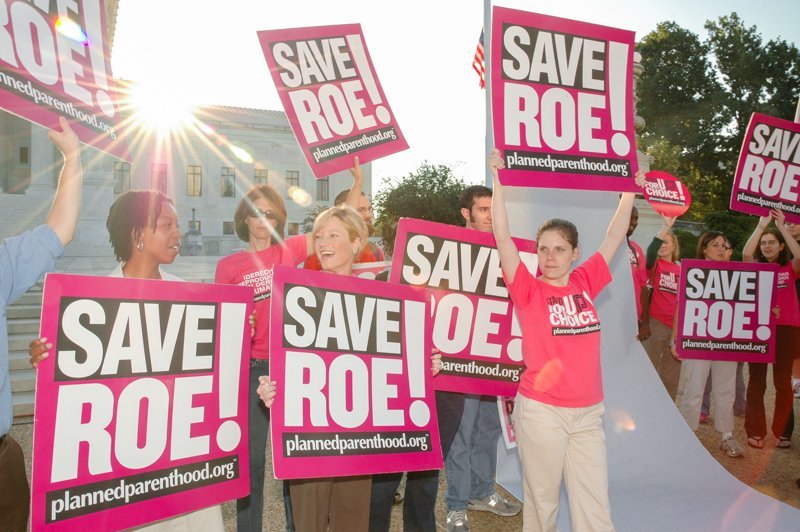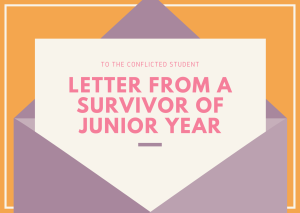What Does Overturning Roe V. Wade Mean For Other Rights?
Protestors fight to save the ruling that protected abortion constitutionally. Image creator: Dwain Currier.
May 6, 2022
According to an initial draft majority opinion written by Justice Samuel Alito obtained and released by Politico on Monday night, the Supreme Court has voted to strike the landmark abortion rights decision of Roe v. Wade, meaning that states can ban abortion entirely.
“Roe was egregiously wrong from the start,” writes Justice Alito in the draft. “Its reasoning was exceptionally weak, and the decision has had damaging consequences. And far from bringing about a national settlement of the abortion issue, Roe and Casey have enflamed debate and deepened division.”
The 1973 decision protected abortion rights at the federal constitutional level for nearly five decades, even followed by the Planned Parenthood v. Casey decision which maintained these rights. Under the 14th Amendment, Roe determined that women would be constitutionally protected to have an abortion for up to 23 weeks of pregnancy, which is typically when a fetus can live outside the mother’s womb. However, the Supreme Court agreed to hear a challenge to Mississippi’s 15-week abortion ban last year, followed by an examination of the Roe v. Wade decision.
Beyond the difficulties faced by women all over, the associated implications of overturning Roe v. Wade are already becoming clear to the population. While Justice Alito has stated that the draft opinion should not necessarily impact other rights, such as the right to marry a person of a different race or a person of the same sex, these rights have similar lines of legal reasoning to the one of the abortion rights landmark. Alito said that what “sharply distinguishes” Roe and its follow-up Casey is that abortion, unlike the other cases, destroys “potential life.”
“None of the other decisions cited by Roe and Casey, involved the critical moral question posed by abortion,” Alito stated. “They do not support the right to an abortion, and by the same token, our conclusion that the Constitution does not confer such a right does not undermine them in any way.”
On the other hand, draft critics see this as a possible opening to target other rights concerned with privacy and liberty, ones that are intertwined with abortion rights at an intersectional level.
Liberal Justice Sonia Sotomayor brought up these concerns at oral arguments regarding the Mississippi case in December, where she said how the court stated that there is an understanding “inherent in our structure” that there are “personal decisions that belong to individuals and the states can’t intrude on them.” Then she listed other cases such as the right to contraception and the right to marry and stressed that, “They have all been discerned from the structure of the Constitution.”
Justice Alito responded to the use of Lawrence v. Texas (the right to engage in private and consensual sexual acts) and Obergefell v. Hodges (the right to marry a person of the same sex) by Biden’s administration in defending Roe, writing, “These attempts to justify abortion through appeals to a broader right to autonomy and to define one’s ‘concept of existence’ prove too much.” He stated that these criteria were “at a high level of generality” and could permit “rights to illicit drug use, prostitution, and the like.”
But others have said that, nevertheless, the draft opinion unlocks a void for challenging other civil rights rulings. Leah Litman, a professor at the University of Michigan Law School, claims that the critiques Alito aims at Roe are “not in the constitutional text.”
“There aren’t early state constitutional provisions or early state or federal court decisions recognizing the right – apply to those other rights, and he’d happily overrule them if he could,” Litman said.
Jim Obergefell, who was the lead plaintiff in the same-sex marriage case, echoes this sentiment with worry.
“It scares the daylights out of me because many of the rights we enjoy—especially the LGBTQ + community—are based on unenumerated rights under the 14th Amendment, the right to privacy,” said Obergefell. “And the belief that if the Constitution doesn’t specifically in writing outline that right, i.e. the right to privacy, then all of those rights that have been affirmed for us that are based on the right to privacy under the 14th Amendment are at risk. “







